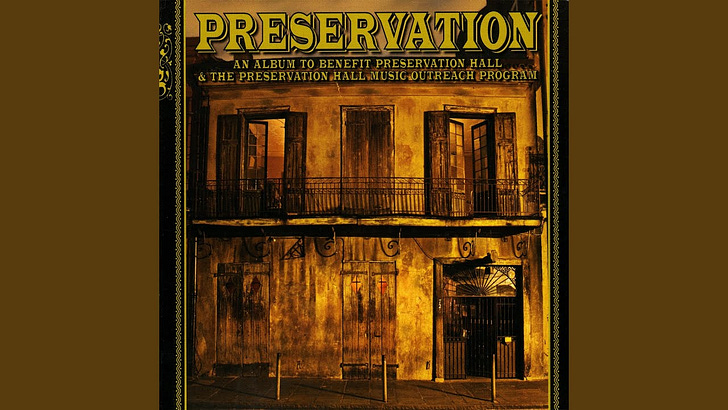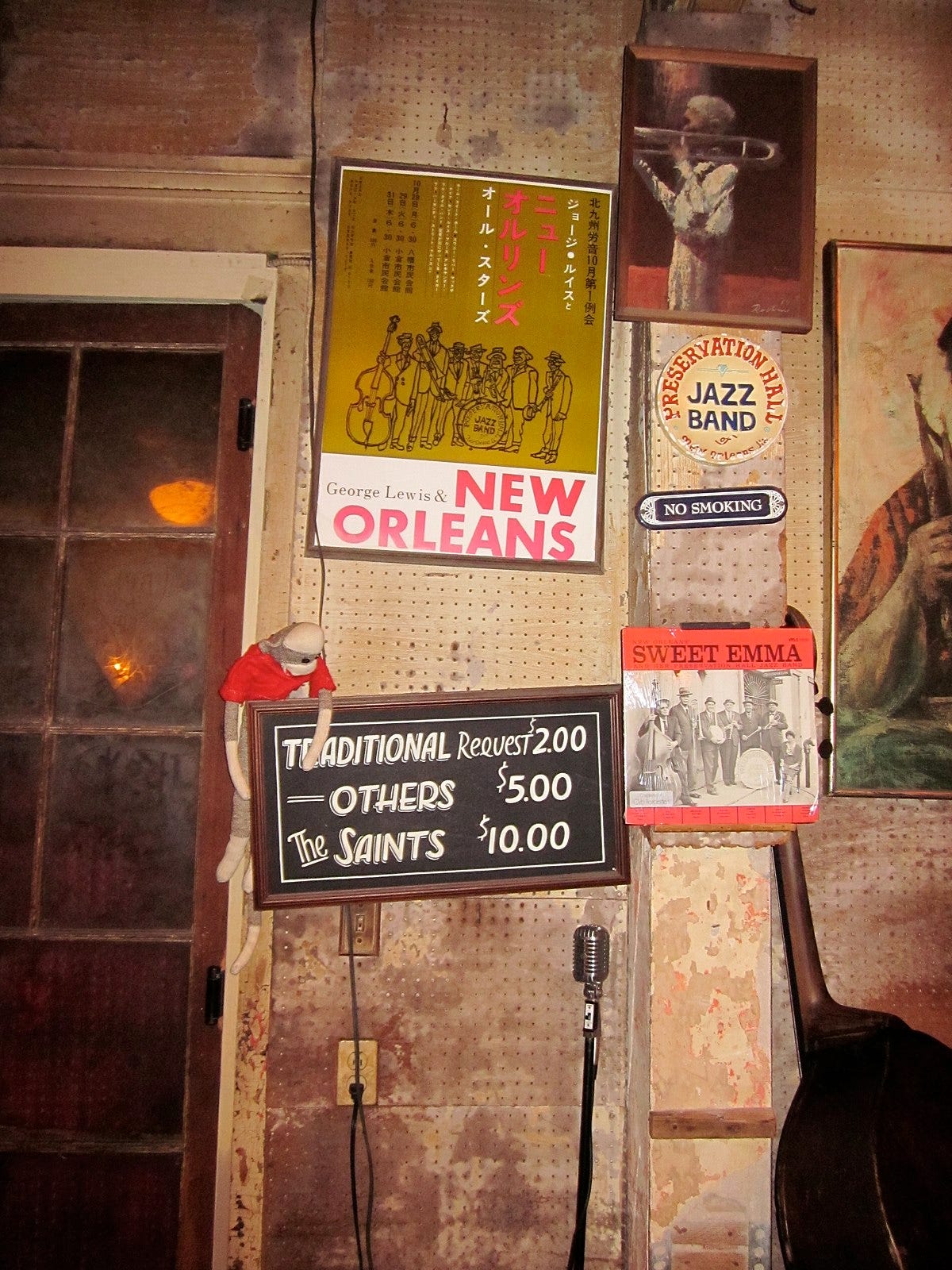"Corinne Died on the Battlefield"
'Preservation: An Album To Benefit Preservation Hall & The Preservation Hall Music Outreach Program', 2010
Every Tom Waits Song is an email newsletter covering just that, in alphabetical order. Find more info here and sign up to get it sent straight to your inbox:
In 2009, Tom Waits traveled to New Orleans to record two songs with the city’s beloved Preservation Hall Jazz Band. One, “Tootie Ma Was A Big Fine Thing,” was released on their 2010 album Preservation: An Album To Benefit Preservation Hall & The Preservation Hall Music Outreach Program. We’ll get to that with the T’s. The other, "Corinne Died on the Battlefield,” was a bonus track on the set’s deluxe edition, later given marginally wider release on a 78 rpm vinyl single. And if, like me, you’re wondering, “can anyone even play 78s anymore?,” they thought of that: 100 of the discs came with their own 78 record player:
It’s not the first time these two old songs have been pared. In fact, when jazz guitarist Danny Barker recorded them both in the ‘40s under the moniker Danny Barker and His Creole Cats, “Tootie Ma” and “Corinne” were the earliest known recorded examples of Mardi Gras Indian chants. A 2022 NPR story has more:
Indeed, for Black artists of the period, artistic control and commercial success rarely went hand in hand. Such was the case for the banjo/guitar player and songwriter Danny Barker, who, in 1953, made a group of Mardi Gras records under his own label, named King Zulu. For the songs, he set his sights on a then-untapped cultural resource: Mardi Gras Indians, also known today as Black Masking Indians. Mighty and beautiful, they occupy the streets with chants, songs and hollers every Mardi Gras morning in their enormous, elaborately beaded and feathered suits.
Before the King Zulu project, only a few artists had recorded music that referenced the Mardi Gras Indians: In 1927, Louis Dumaine and His Jazzola Eight released "To-Wa-Bac-a-Wa," a jazz instrumental that didn't show any obvious Indian influence beyond its title; there was also the inclusion of a few Indian phrases in Bartholomew's "Carnival Day" and James "Sugar Boy" Crawford's "Jock-a-Mo." But Barker's King Zulu sides would be the earliest set of recordings to incorporate the folk songs of Mardi Gras Indians. They also amount to the first Mardi Gras album — a group of songs all written, recorded and released with Carnival in mind.
Barker’s recordings didn’t make a big splash then, because they were released as shellac 78s in 1953 just when vinyl 45s were coming into favor. Waits and Preservation Hall’s 78 single was no doubt a nod to that history. Here’s Barker’s version (despite it being labeled Baby Dodds Trio on YouTube, this is the same one):
“Corinne Died on the Battlefield” (sometimes listed as “Corey Died,” as on this killer Wild Magnolias funk version) tells the story an Indian queen who gets caught in the crosshairs of a brawl on Mardi Gras Day. Waits sounds great in this call-and-response context, but the real stars here are, appropriately enough, the Preservation Hall Jazz Band, who have a much closer connection to this local New Orleans history than Tom does. His contribution helped them raise much-needed money a few years after Hurricane Katrina, and they’re still going strong to this day. Pete Townshend sat in with the band at their Preservation Hall home base last Jazzfest:
It’s a fun video, but points to Tom for digging a little deeper than the local cliché “When the Saints Come Marching In” for his selections. There’s a reason the old song-request song at Preservation Hall reads:




